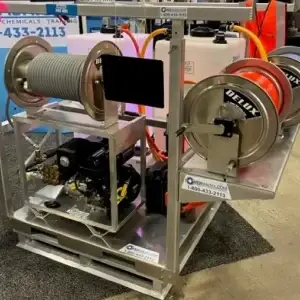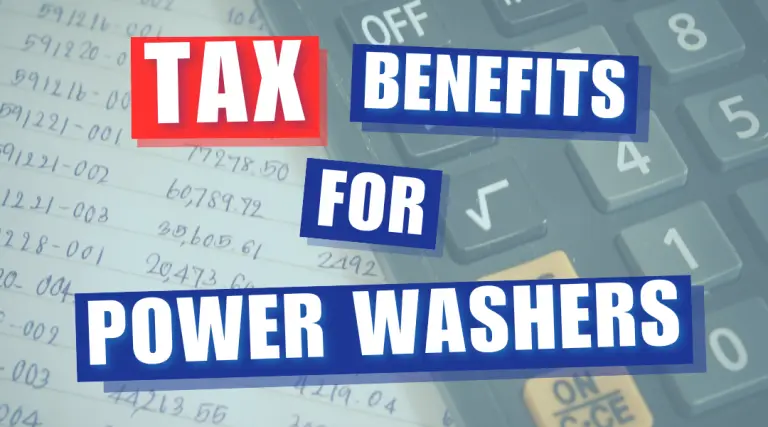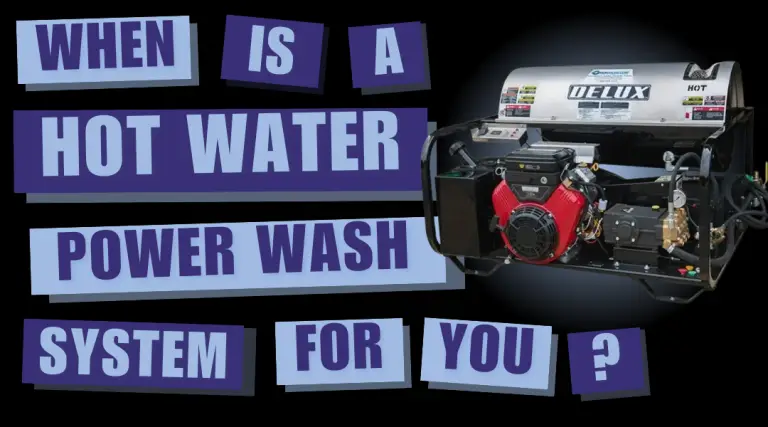- Home
- /
- PowerWash Industry
- /
- Is Getting The Certification Worth It?
Subscribe To Our Newsletter
Stay in the know on the latest products, deals, events, tips & tricks.
Social Media
Popular Products
-
All Pressure Washers
Delux Mustang Pro Mini Complete Skid 4′ – Approved for Drone Use (Surface BOT)
$13,187.90 -
Awning Cleaning
Rust Remover Plus Pressure Washing Chemical: Achieve Fast, Professional Results!
$14.47 -
-
Is Getting The Certification Worth It?
A VIEW FROM THE AHJ
Is Getting The Certification Worth It?
R. T. Leicht, CFPS, CFI
This is a difficult question to answer. It causes other questions to be asked. Exactly what is being certified? Exactly what party is certifying who? And is that party that is doing the certifying actually qualified to do so?
To evaluate the capability of an individual, his knowledge and skills of the task in question needs to be measured. Too often, a written test merely measures one’s knowledge. It has little bearing of one’s skills. A strong certification program will find a way to encompass both components. Certainly a testing is needed. It creates a minimum guideline on what has to be known by the contractor. However, there may be persons in this world that are good test takers. One could theoretically pass the test and yet never have cleaned a hood and duct system in his life. In contrast, there are those that may have been involved in the industry for years but never took the time to acquaint themselves with the new technologies, latest developments, or even the most recent Code changes.
The next concern is whether “capability” is the only factor that a so-called “certified” individual needs to possess in order to be considered competent. The answer is “NO!” Besides “capable” the vendor needs to be “dependable.” All the certification in the world isn’t of much value if the service is not being conducted in a reliable manner.
This is why certification should be conducted by an independent third party. Some cities and states require fire alarm and sprinkler contractors to obtain certification from NICET, a nationally recognized engineering technology certification organization. NICET has nothing to lose or gain by who becomes and who does not become certified. Additionally, their existence depends on their being perceived as a “bona fide” testing organization. It is to their benefit to stay completely neutral.
Finally, A program, which does not include field review and recertification, may be doomed to fail. Just because an individual successfully passes an exam and even has proved that he possesses the skills needed to do the job correctly, does not mean that he will do it. There needs to be a mechanism in place to assure that the individual is performing the work in the prescribed manner. If it is found that he is taking “shortcuts”, his certification should be rescinded. Additionally, we have to recognize that as times change, so does the industry. It is important that certified individuals stay in tune with the latest practices, methods, and codes. A means of occasional recertification should be implemented.
So have we answered the original question yet? “Is certification the answer?”
I think we have. The answer is, “IT CAN BE!” However, it is necessary that the certification evaluates the individual’s skills as well as his knowledge, it is administered by a truly independent entity, and it includes means for decertification and recertification.
About The Author: R. T. Leicht is the President of the Fire Marshals Association of Delaware Valley, a chartered chapter of the Fire Marshals Association of North America. He also serves as the Deputy Fire Marshal in Springfield, PA and is involved with NFPA on many levels including a principal on numerous Technical Committees.
This article appeared in the Second Quarter 1998 edition of “The Scratch Pad”
Share This Post
More To Explore
Tax Benefits For Power Washing Professionals
Navigating the complexities of tax planning can be a daunting task for power washing professionals, yet it’s a crucial aspect …
Top 5 Must-Have Attachments to Elevate Your Power Washing Efficiency and Precision
Attachments for power washing systems are essential tools that significantly enhance the effectiveness, speed, and precision of professional cleaning jobs. …
When Should You Get A Hot Water Power Wash Machine?
When a Hot Water Power Washing System is Your Best Choice When deciding between a hot water power washing machine …
The Science Behing Power Washing
The Science Behind Effective Power Washing The science behind power washing is a balance of pressure, water, and chemical solutions …













